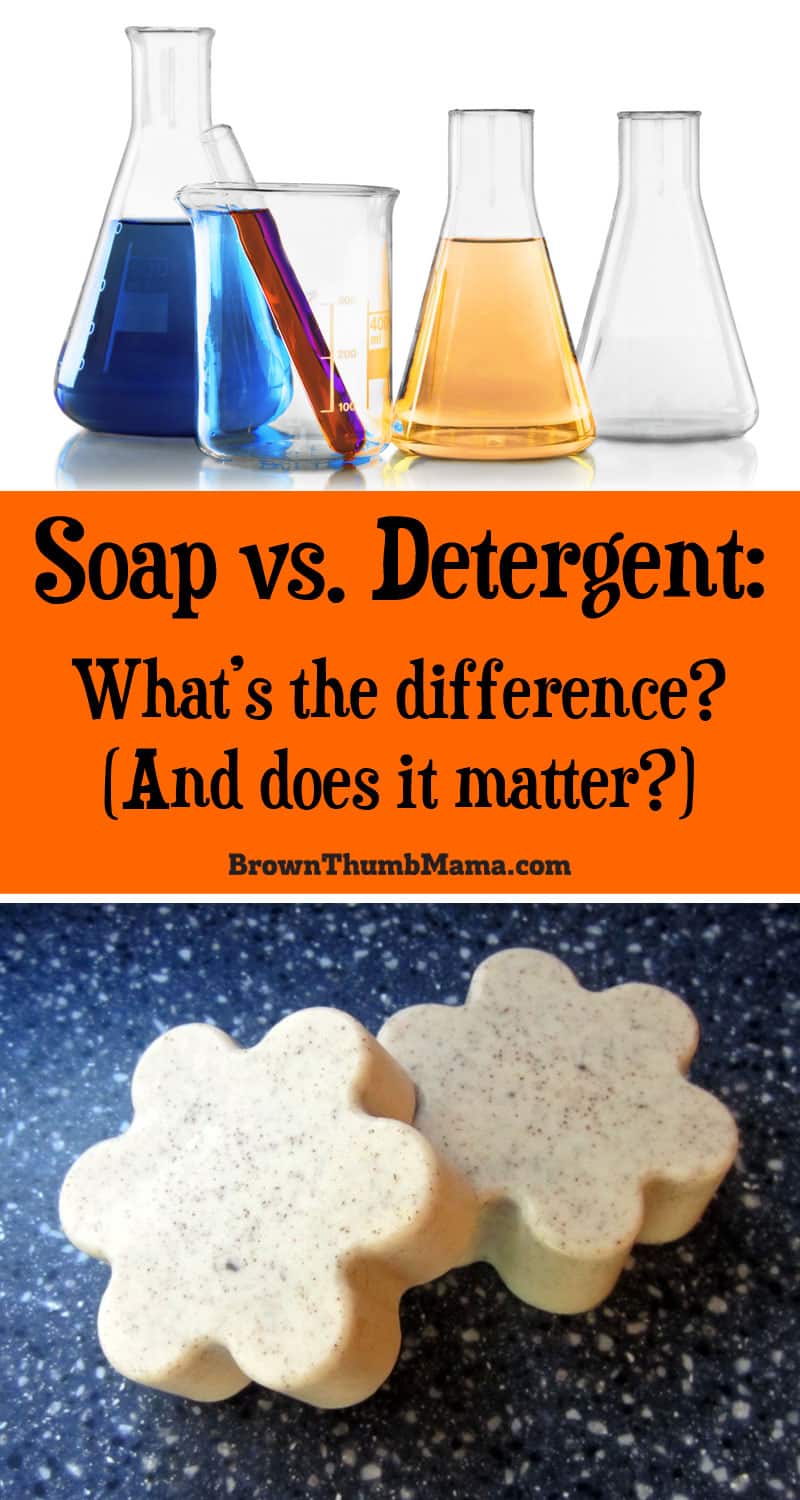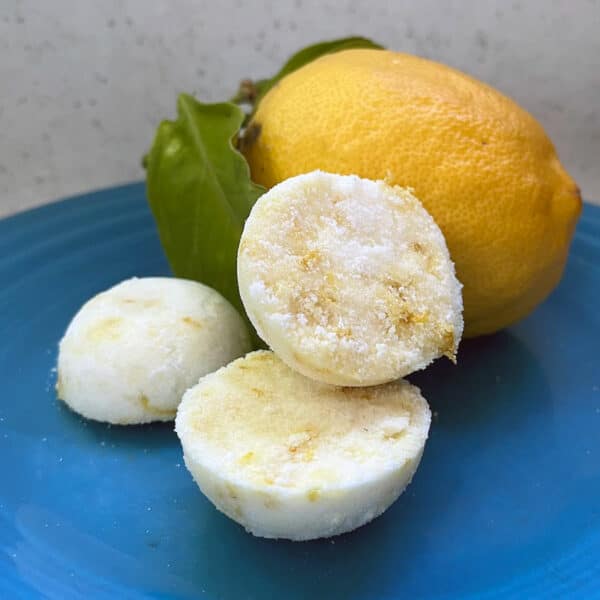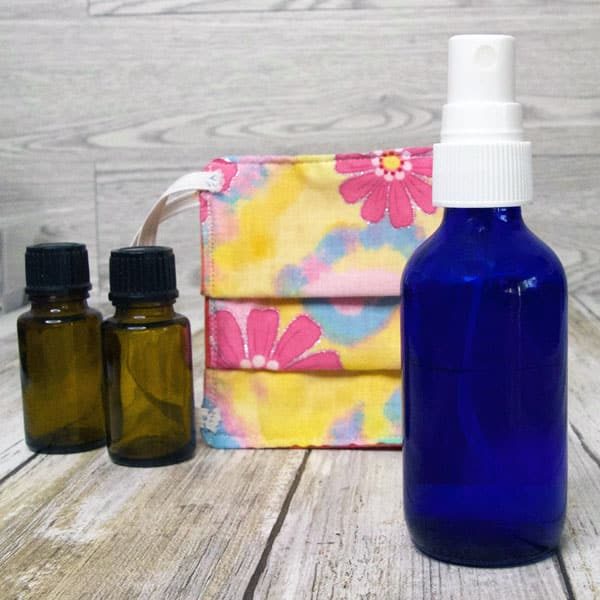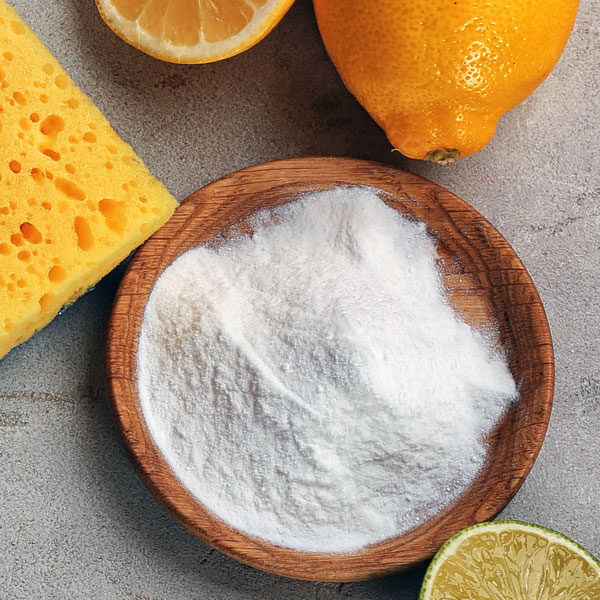This post may include affiliate links.
If you make a purchase, I'll earn a small fee at no extra cost to you.
At our house, we make a lot of homemade, natural cleaners. It’s so easy to make your own glass cleaner, natural all-purpose cleaner… you can even kill germs without using bleach.
Over the years, as part of making our home more natural, I’ve tried several recipes for homemade laundry soap. They just didn’t work.
After a bit of research, I learned that these recipes use soap instead of detergent. But what’s the difference between soap and detergent? And why does it matter?
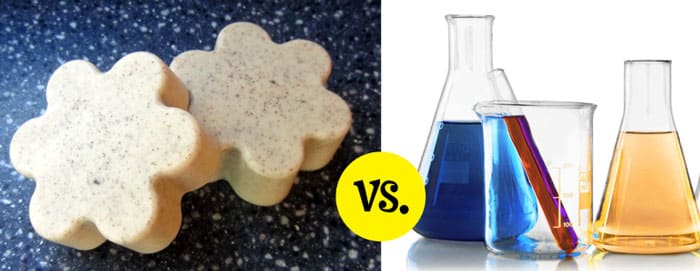
The short answer is: soap is natural and detergent isn’t. But there’s more to it than that.
How is soap made?
Soap is created by mixing fats and oils with an alkali or base. This method has been around for hundreds of years–remember the soft soap Ma used in the Little House books? It was created with ashes (that contain lye, a base) with animal fats.
You can use commercial-grade lye, oils, and colorants to make homemade soap. Because we have little ones, and lye is caustic and dangerous, I prefer to make soap without using lye. It’s a fun project to do with the kids, and you can scent it with the essential oils or herbs of your choice.
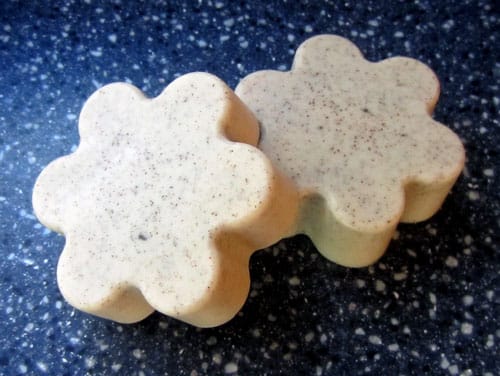
Since soap is natural, it is biodegradable and less harmful to the environment than detergents. However, the minerals in water react with soap and can turn clothes gray and leave a film or residue. Detergent is a big improvement, as far as laundry is concerned!
How is detergent made?
Detergents are made by combining chemicals in a slurry mixer. The mixture heats up as a result of chemical reactions, and then it’s dried and powdered to form the final product. On average, there are about ten steps between the original raw materials and the final detergent.
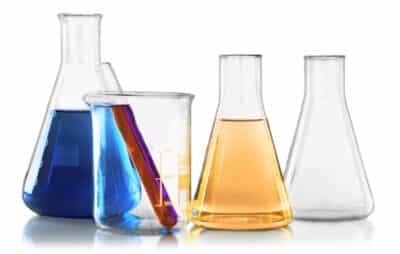
If you’re using a liquid detergent, then it’s probably had water added to it after it was dried and powdered. Crazy, huh?!?
However: because detergents don’t react as much with the minerals in water, they’re the best choice for laundry.
How can I tell the difference between soap and detergent?
It’s confusing because most detergents are camouflaged as soaps. Manufacturers use the terms “facial bar” and “body cleansing bar” to keep us guessing. Ahem…Dove…I’m lookin’ at you.
What’s a girl to do? Read the label.
Look for chemicals like sodium lauryl sulfate or cocomidopropyl betaine, and then run the other way. True soaps have ingredients like oils, saponified oils, or glycerin.
What should I buy?
As always, you need to do your homework and make your own decisions. We use Kirk’s Castile soap for our bodies, Dr. Bronner’s liquid castile soap for cleaning. For laundry, choose natural detergents without synthetic fragrances and dyes (I like Seventh Generation).
Soaps and detergent are used on our skin, our clothes, and in our homes. Immediately after use, they go down the drain and into our environment.
Doesn’t it make sense to use the least toxic products we can find?

